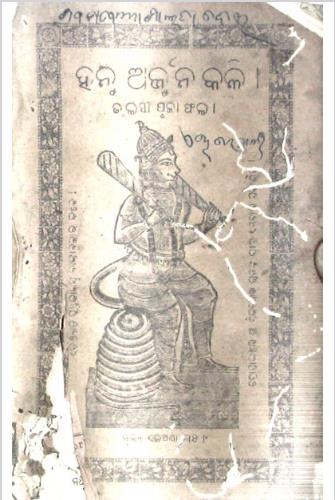Published in 1927, Hanu Arjuna Kali is a remarkable collection of poetry that captures the themes of mythology, spirituality, and human emotion through the lens of its author. This work stands out not only for its literary merit but also for its exploration of complex cultural narratives that resonate deeply with readers. The title, often interpreted as The Kali of Hanuman and Arjuna, sets the stage for a rich tapestry of imagery and symbolism rooted in Indian mythology.
The 1920s were a significant period in India, marked by the interplay of traditional values and modernity. As the country grappled with colonialism and the struggle for independence, literature became a powerful medium for expressing social, political, and spiritual aspirations. “Hanu Arjuna Kali” emerged during this dynamic period, reflecting a collective yearning for identity and cultural continuity. The poet carefully weaves tales from mythology with contemporary themes, creating a dialogue between the ancient and the modern.
At its core, Hanu Arjuna Kali delves into themes of heroism, divine intervention, and the eternal struggle between good and evil, as echoed in the lives of its mythological figures. The characters of Hanuman and Arjuna are emblematic of strength, devotion, and courage, and they serve as conduits for exploring deeper philosophical questions about faith, duty, and morality. By invoking these legendary figures, the poet invites readers to reflect on their own life journeys and the choices that define their paths.
The figure of Kali, known for her fierce and protective nature, adds layers of complexity to the collection. She embodies the darker aspects of existence while also symbolizing strength and resilience. Poetry that engages with Kali’s image often challenges societal norms and dares to confront the shadows within human nature. In this way, the collection resonates as a celebration of empowerment amidst struggle.
The poetic language of Hanu Arjuna Kali is vibrant and evocative, rich with imagery and metaphor. The poet employs a variety of forms—lyrical, narrative, and haiku-like verses—to capture the multifaceted essence of both the characters and themes. The rhythm and cadence of the poetry enhance its lyrical quality, making it not only a visual experience but also a musical one. Each poem invites readers to lose themselves in its sound and meaning, creating an immersive reading experience.
This collection not only entertains but also educates, providing insights into Indian mythology and philosophy. It broadens the understanding of how traditional stories can be retold in a modern context, allowing contemporary readers to connect with their cultural heritage. The exploration of these mythological themes fosters a sense of identity and belonging, particularly for those navigating the complexities of modern life.
Hanu Arjuna Kali is an important contribution to Indian poetry, showcasing the richness of mythological narratives while promoting introspection and dialogue about personal and communal values. Its impact continues to inspire poets and writers, encouraging them to explore their cultural roots and express contemporary dilemmas through the lens of traditional stories.
Books Info
| Books name | Hanu Arjuna Kali / ହନୁ ଅର୍ଜୁନ କଳି |
| Author | NA |
| No Of pages | 10 |
| Publisher | NA |
| Publication | 1927 |
| Printed At | The C. P Works |
| Distributor | NA |

